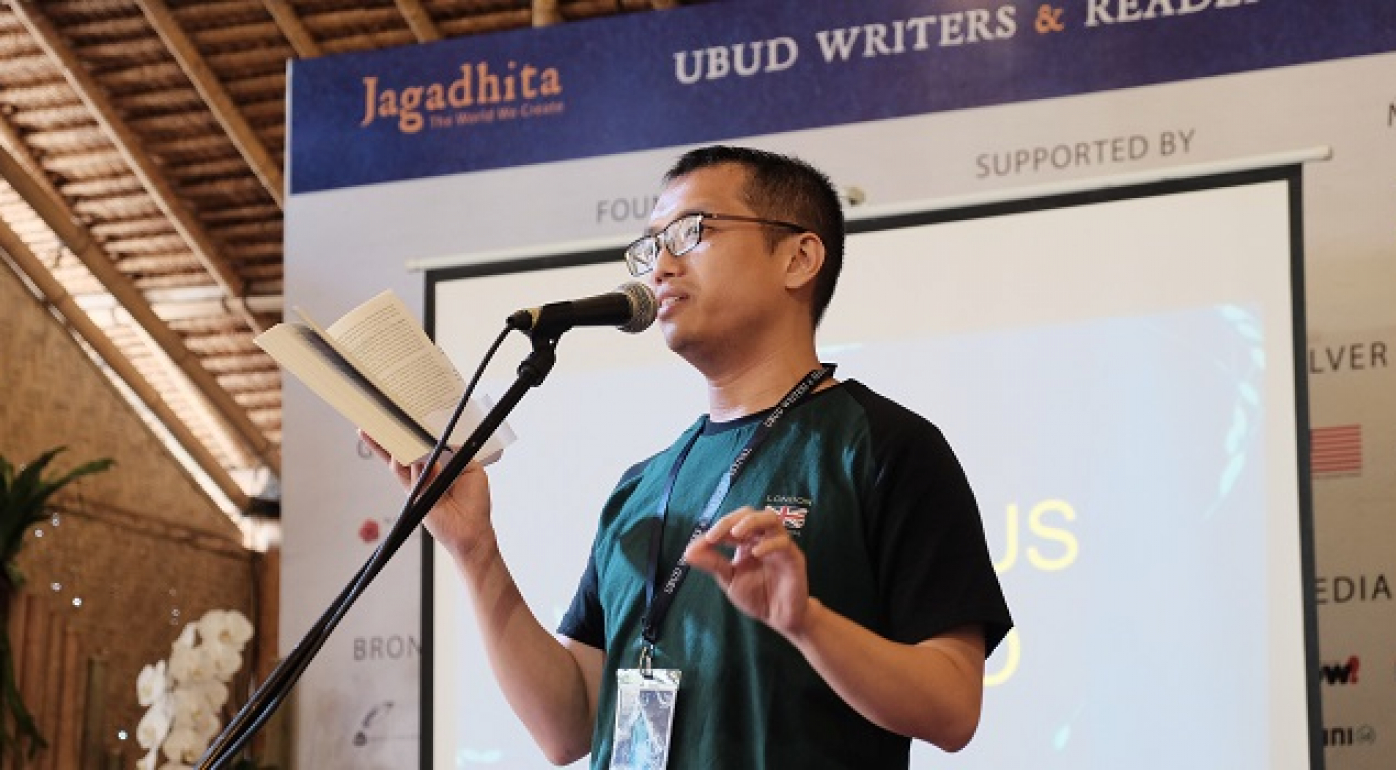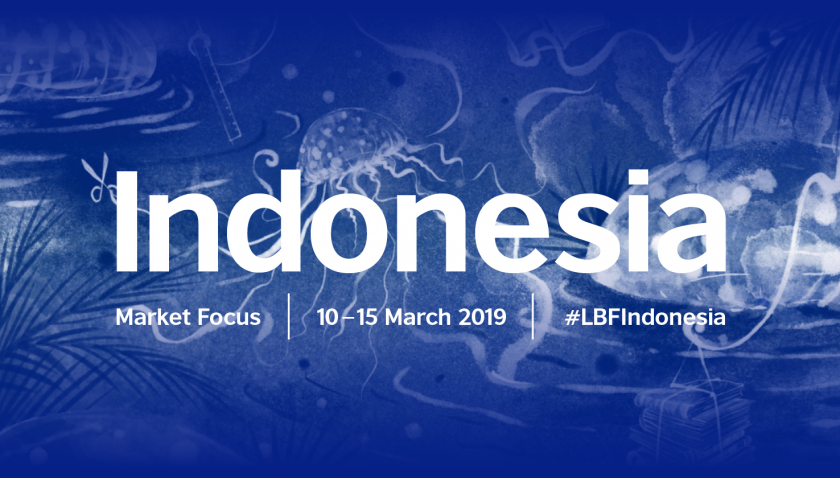How do you feel about being chosen for London Book Fair?
I was really excited; it came as a surprise as they only chose 12 writers from so many Indonesian writers. They chose me I think because they felt I could represent the genre of travel writing, which is quite a new genre in Indonesia. In the 21st century there are more opportunities for Indonesians to travel abroad, and travel around the country, so there are more and more young people travelling and shaping their perspectives in seeing the world outside them, and seeing themselves. I think it’s a really good opportunity.
What’s exciting about Indonesian literature at the moment?
Indonesian literature is so fast, and it’s so big - this is a country with a population of 250 million – and we have experienced such a drastic change in our social lives following the reforms in 1998. Before then, under the Suharto regime, everything was controlled, information was controlled, and even what was inside our minds was controlled by the government. Then, after the regime changed, and we entered the era of democracy and free speech suddenly you can see so much new expression, new writers, new readers popping up around the country, even in the deep, isolated parts of Indonesia, and you can still find writers with very special and unique perspectives.
Talk to us a bit more about your travel writing.
I wanted to be a journalist, but as a computer student I had no knowledge of journalism or social sciences so I think, the best teacher in the world is real life.
I decided to save some money and I planned to travel around the world with this money for maybe 5 years. I started travelling overland from China to Tibet, Nepal, India, Pakistan and Central Asia etc… When I was in India, I met a Malaysian journalist who taught me some basics and suggested that I read some travel narratives. The first book I read was by V. S. Naipaul, I learnt so much from his techniques of interviewing people, observing people; it shaped my own travel writing.
I went to Pakistan after reading Naipaul and his work really helped me to understand the country on a much deeper level. I also went to Afghanistan and became a journalist; I travelled around the country reading books on travel and history which helped shape my perspective. And because my standard was Naipaul, I put this as the ‘foundation stone’ of my writing. In Indonesia at that time I couldn’t recall any travel narrative books written in the literary way, so that’s why when my first book came out, it became a discussion here. At this festival I met some of my readers, and some came to me and said "Oh I was reading your book when I was in high school and now I’ve also become a writer, your book became my standard". So I think this is the beauty of writing, because we keep sharing and we keep learning from each other. And we keep producing things and sharing stories, and I think that’s very beautiful.
What do you think Indonesian authors can learn from the UK and vice versa?
I really cannot say for all Indonesian authors, but when it comes to non-fiction and travel, UK authors have the guts to travel anywhere in the world, and to really dig into society, and maintain scepticism and also British humour, which I really love. This scepticism is very important for travel writers or journalists because when you see things you always question what is in front of you, and then try to see the root, the reason behind the phenomenon that you experience. So I think that’s what I learned from the UK writers.
What UK writers can learn from Indonesian writers...I don’t really know!
What do you bring as an Indonesian writer that’s different to UK travel writers?
I think it’s a very personal thing, because not every author is the same....maybe we have a different perspective, because Indonesia is a post-colonial country, so when we visit another country we rarely put ourselves as superior to them. I think it’s very important not to tell another country what it should be. I think the best way when being in another society is to try to blend in as much as possible, and try to be part of them, and see the world from their perspective, because we don’t necessarily understand what is happening in that place, especially as travel writers, you just visit a place for a short time, so our experience of a place is very limited. This isn’t specific to UK writers, this general...the idea is to try to be equal.
What is the greatest book you’ve ever read and why?
I think one of the best books I’ve read is Sapiens: A Brief History of Humankind (Yuval Noah Harari, Harvill Secker), because it documented the history of human species.
Your book is being made into a film, can you tell us about that?
My third book is more like a travel memoir. It’s the story of me accompanying my dying mother in the last few days of her life and reading her the stories from faraway places, because she had never travelled anywhere. Whilst sharing the stories, my mother also started to open herself. She started to tell me about her life journey, her being a woman, being a Chinese woman in Indonesia, her love, her sadness, her hope, her despair...so I started to learn in that very moment, to re-learn about my mother.
The book then became quite popular in Indonesia because it’s not only talking about places, but also talking about human emotion. Many readers have fed back to me that they found in it a reflection of themselves. I think that’s the point of travel narrative, because the travel experience is the experience of the author, but it can be a reflection as well for the reader. The physical journey might be different, but much of the emotional journey is the same. We signed this in 2016 so I think they are now in the process of the script writing.
On being called a travel writer...
In fact, I don’t really wish to be framed as a travel writer. That’s only people who travel to places and write only about their experience and my work is not only about this type of travelling. After I came home and wrote about my travels, I realised that the biggest issue that drove my journey was the issue of identity. I was raised as a minority in Indonesia, so the question of identity, the question of home, keeps making me question who I am, where do I belong, and where is my home. This question made me travel to China, to the land of my ancestors, to see if this was where I really belonged. But I found I was still an outsider.
Back in Indonesia I had experienced a lot of racial discrimination so this drove me to find the concept of home. That brought me to travel in India, Afghanistan, and Pakistan, to see the meaning of home from different perspectives. So the purpose of my traveling in fact is actually about trying to see the reflection of myself. I found the questions inside me reflected in the people I met and the experiences I had when I interacted with them. For me travelling is like this mirror, so I can see inside me. So travelling is to look outside, to be able to look inside.

